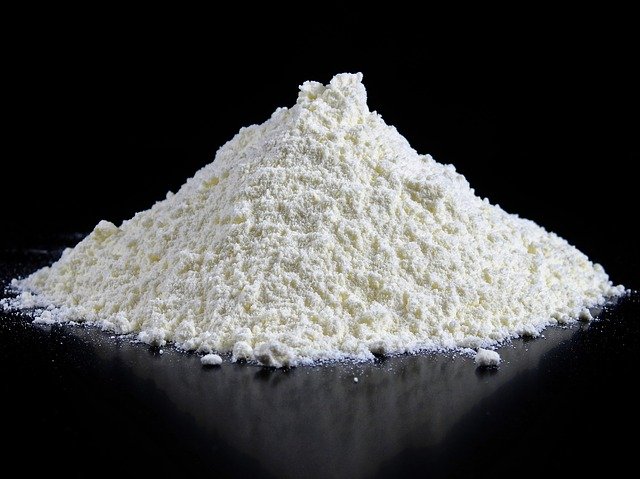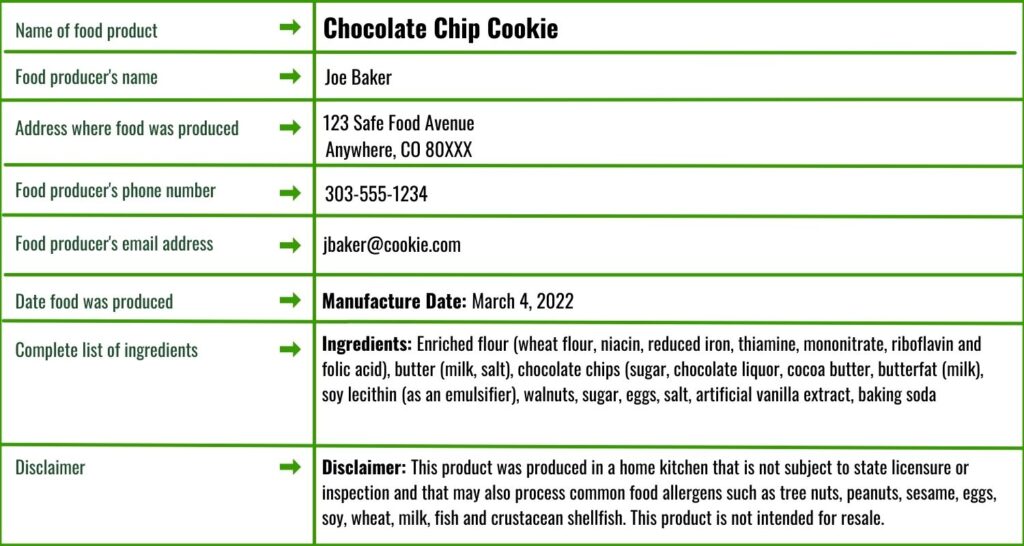Products baked with flours, such as breads, are very popular in our society. The three parts of the wheat kernel — the bran, germ, and endosperm — are separated during milling and recombined to create different types of flours. Although any grain can be used to make flour, wheat flour is the predominant choice because it provides the protein structure needed for baked goods.

Six different types of wheat are commonly used for flour, resulting in products with varying textures, protein and gluten-forming potential. Colorado grows primarily red and white hard winter wheat, but also has a minor production of spring wheat.
Potential Products
White Flour
The finely ground endosperm of the wheat kernel.
Whole Wheat Flour
Made from either grinding the whole wheat kernel or recombining the white flour, germ, and bran that have been separated during the milling process.
Bread Flour
A white flour blend of hard, high-protein wheats with greater gluten strength, leading to better gas formation and rise in yeast breads.
Gluten-Free Flour
Flour or flour blends made from grains other than wheat, barley or rye; typically used by those with gluten sensitivities and often requires additional ingredients to bind baked goods.
Safely Providing Samples
Non-potentially hazardous baked goods made from producer’s flour may be offered for samples. Samples must be offered in a sanitary manner using single-use service items such as disposable cups and spoons. Servers must wear a new pair of gloves when preparing samples and/ or use clean utensils when handling samples.
Food Safety Concerns
Flour requires extensive handling during harvesting, milling, packing, and storage, creating multiple opportunities for contamination. To lower risk of foodborne illness, it is recommended that products containing raw flour, such as raw cookie dough, not be consumed.
Wheat is one of the “Big 8” top food allergies, and can pose serious health risks to those who are affected. Following the Colorado guidelines to include ingredients and the proper statement on cottage food labels is not only required but critical for those consumers avoiding certain ingredients.
Packaging
Products must be packaged in food grade materials. All cottage food products must be labeled, and display the information required by the Colorado Cottage Foods Act and outlines by the Colorado Department of Public Health and Environment.
QUESTIONS:
Q: What about almond flour or garbanzo bean flour? Are those covered under the Colorado Cottage Foods Act?
A: Yes, bean and nut flours are allowed and they are gluten-free.
Q: Am I able to offer samples of baked goods made with my flour at the farmers market?
A: Yes, and safe sampling practices should always be followed.
Resources
- Colorado State University Extension: http://extension.colostate.edu
- Colorado Wheat: http://coloradowheat.org
- Wheat Foods Council: http://www.wheatfoods.org
Colorado Cottage Foods Act
Colorado Senate Bill 12-048 allows individuals to produce, sell, and store a limited number of specific, non-potentially hazardous ‘cottage food’ products, in a home kitchen. Cottage food businesses require no license or permit from the Colorado Department of Public Health and Environment and are not inspected by any state or local government entity. Products must be sold directly by the cottage foods operator to an informed end consumer and gross sales for each product produced must not exceed $10,000 annually. Sales outside of the state of Colorado are prohibited.
Allowed Cottage Food Products in Colorado
A limited range of foods that are non-potentially hazardous and do not require refrigeration are allowed. These foods include spices, teas, dehydrated produce, nuts, seeds, honey, jams, jellies, preserves, fruit butter, flour, baked goods including candies, fruit empanadas, and tortillas, and pickled fruits and vegetables.
General Labeling Requirements
A cottage food operation may only sell products offered with a label containing the following information (printed in English):

Food Safety Training
Although a cottage food kitchen does not require licensure, the producer does need to obtain food safety training. The Colorado Cottage Food Act requires “a producer must take a food safety course that includes basic food handling training and is comparable to, or is a course given by, the Colorado State University Extension service or a state, county, or district public health agency, and must maintain a status of good standing in accordance with the course requirements, including attending any additional classes if necessary.”
Trainings that CSU Extension offers include face-to-face as well as online classes, varying in length and cost. Contact your CSU Extension county office for more details: http://extension.colostate.edu. For information on class offerings near you, visit: https://foodsmartcolorado.colostate.edu/food-safety/cottage-retail-foods/.
Resources
Colorado Department of Public Health and Environment: http://cdphe.state.co.us and Colorado Farm to Market: http://cofarmtomarket.com


